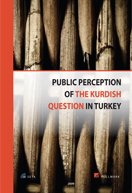Comparing his philosophy and that of Hegel, the German philosopher Ludwig Wittgenstein is reported to have said that while Hegel tries to show all differences to be the same, he sees all similarities as essentially different.
Hegel sought to overcome differences to reach a transcendental unity. He was so concerned with the absolute unity of things -- both in philosophy and in German politics -- that his philosophy ended up being an ideology of absolutism. The Hegelian dialectic considers the overcoming of differences as the eventual goal of history. Where this inevitable march is weak or impeded by external factors, the Hegelian state has the right and duty to step in. In sharp contrast to Hegel, Wittgenstein saw his later philosophy as a quest to show everything as essentially different. In the “Tractatus Logico-Philosophicus” Wittgenstein had developed the picture theory of language, in which human language was thought to have mirrored reality as it truly is. An atomistic notion of reality had led Wittgenstein to an atomistic, reductionist and one-dimensional concept of language. The expression of such a “neat world” in human language could only be in the form of logical propositions, precise formulations and clear-cut sentences. Logical positivism, which owes its birth to the Tractatus, assumes such a one-to-one correspondence between language and reality.
Wittgenstein’s later philosophy, as developed primarily in his “Philosophical Investigations,” reversed this picture theory of language and argued instead for the infinite complexity of the world and of the human language as its bearer. Reality is too diverse, too complex and multilayered, to be reduced to any one single phrase or proposition. What appears to be similarity is, in the end, different. The closest we can get to a notion of essential similarity is “family resemblance,” some kind of a general characteristic shared by different members of a loosely connected group. Hegel’s quest for absolute uniformity and Wittgenstein’s construction of a radical philosophy of difference represent two competing notions of how to regulate unity and diversity. Modern Western philosophy has tried both alternatives and ended up with absolutist ideologies, on the one hand, and bottomless relativisms, on the other. For the last two centuries, Western political history has witnessed the rise and fall of countless leaders, parties, states, unions, movements and ideologies; all attempting to secure some kind of a social unity while making claims of national uniqueness and difference. National identities have been constructed around modern nation-states to emphasize the differences between nations and communities. Modern nationalism defined “difference” as a basis for uniqueness, superiority and privilege. Being different from others gave nationalist ideologies the excuse to create one-dimensional and reductionist notions of national unity and social cohesion. The national socialism of the Nazis defined the German identity not only as unique and unified but also absolutely superior to others. Other nationalisms treaded similar paths. Today both philosophy and political thought have succumbed to the forces of modern consumerism. Capitalism recognizes similarities and differences only to assert itself in different cultural contexts as being domestic and indigenous. Similarities and differences are meaningful categories to the extent that they serve to open up new markets for multi-national corporations. Wal-Mart can sell you anything anywhere in the world. Barbie can dress up and look like an American, a Latino, a Turk or an Indian. Online shopping goes beyond all similarities and differences. You can open up a bank account virtually anywhere in the world and do business as if you’re the citizen of any country. So far so good. But too much of anything is bad for you. The current rush to overcome differences through market capitalism and globalization will only trig








